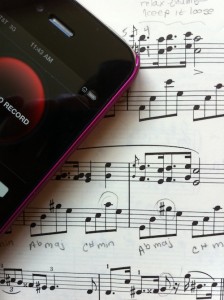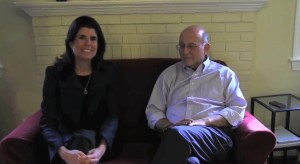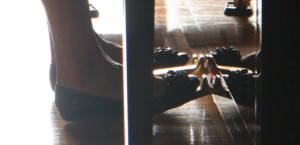During the summer at my church, the choir takes a break, and the amateur pianists, violinists, and vocalists pick up the slack. This past August, when our music director, Julie, asked me to play during the Offertory, I decided to dust off a Chopin piece in my repertoire, the Nocturne in E-flat Major.
For the following five days, I practiced intensely, breaking apart the left hand’s bouncing triplets and the right hand’s intimidating runs of thirty-second notes. The night before the performance, I recorded myself playing the Nocturne in its entirety (I often do this), and I was happy with my rendition.
Twelve hours later, I sat in a pew with my nine-year-old daughter Mena waiting for the service to begin. “Are you nervous?” she asked me with an understanding smile.
“A little. But I really want to do this,” I said.
When the Offertory arrived, I sat down at the antique Steinway grand. I had asked my husband, David, to video my playing on his iPhone. On the bench, I tried to sing the Nocturne’s opening phrase in my mind and center myself in a zone of concentration, but I could not help worrying that David would jiggle the iPhone, as he unfortunately had done at a recital earlier in the year.
I launched into the E-flat Nocturne and promptly bungled the opening phrase. For a few panicky moments, I feared I would lose the melody’s thread entirely. Worried about David’s job recording the performance, I had forgotten to focus on my role of playing. (And as you can see from the video, David held the camera very steadily.)
I managed to fake a few chords and continue. As I progressed through the Nocturne, I could tell that I was not managing to replicate the contrast in dynamics I had achieved at home. The pianissimo sections rang a little too loudly, the fortissimo sections sounded too muted.
I reached my favorite section, the translucent pianissimo interlude just before the explosive finale. I tripped up again and only managed to recover by jumping ahead a few measures. I felt distressed that I had messed up my favorite part, yet I had no choice but to move on. I rang the closing octaves down the keyboard, managing to nick only a few wrong notes, and with relief I played the final chords.
After I stood up from the bench, I wanted to blurt out to the congregation, “This sounded so much better at home!”
A concert pianist once confided to me that performance nerves knock off about 20 percent of a piece, and my experience was consistent with that. At the end of the service, I thanked Julie for the opportunity to play, and I meant it. I knew that the next time I would perform this piece, it would be stronger for the experience. Of course, it would not sound as good as it had at home.




0 Comments